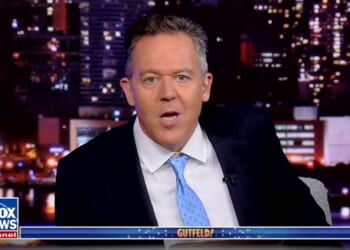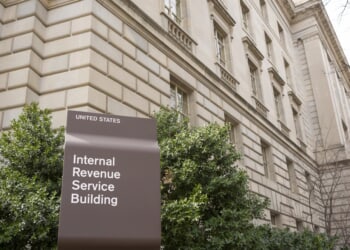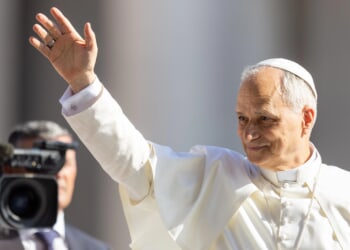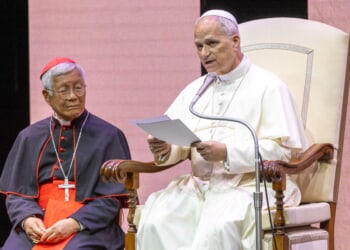The Internal Revenue Service made a statement on Monday that would allow churches to support political candidates of their choice without losing their tax-exempt status, overturning decades of precedent in a recent court filing.
The court filing on July 7 was between the plaintiffs, two Texas churches and the National Religious Broadcasters, and the IRS. The National Religious Broadcasters challenged the 1954 Johnson Amendment (proposed by then Sen. Lyndon B. Johnson) — a provision in the U.S. tax code that prevented any 501(c)(3) organization from participating or intervening in “any political campaign on behalf of (or in opposition to) any candidate for public office.”
The Johnson Amendment, the plaintiffs argued, violated their First Amendment right to freedom of speech and exercise of religion, the Fifth Amendment right to due process and equal protection under the law, and the Religious Freedom Restoration Act.
“When a house of worship in good faith speaks to its congregation, through its customary channels of communication on matters of faith in connection with religious services, concerning electoral politics viewed through the lens of religious faith, it neither ‘participate[s]’ nor ‘intervenes[s]’ in a ‘political campaign,’ within the ordinary meaning of those words,” both parties stated in their joint motion.
President Trump has been a vocal opponent of the Johnson Amendment since his first term. “I will get rid of and totally destroy the Johnson Amendment and allow our representatives of faith to speak freely and without fear of retribution. I will do that,” Trump said at the 2017 National Prayer Breakfast. Later that same year, Trump signed an executive order that aimed to ease the Johnson Amendment’s restrictions.
When asked about the recent court filing on Wednesday, Trump responded, “I love the fact that churches could endorse a political candidate. If somebody of faith wants to endorse, I think it’s something that I’d like to hear.”
California Governor Gavin Newsom, who is positioning himself to be the Democratic contender for the 2028 presidential ticket, weighed in his dissent on Wednesday to reporters. “I don’t know if it’s healthy — I don’t even know it’s legal, but it’s not surprising. I just find it politically convenient,” Newsom said while touring around to churches and businesses in South Carolina. (RELATED: Gavin Newsom Tests 2028 Waters, But Faces a Major Problem)
National Council of Nonprofits CEO Diane Yentel spoke out against the court filing, emphasizing the importance of nonprofit organizations being nonpartisan. “This action — long sought by President Trump — is not about religion or free speech but about radically altering campaign finance laws,” Yentel stated.
“The decree could open the floodgates for political operatives to funnel money to their preferred candidates while receiving generous tax breaks at the expense of taxpayers who may not share those views. Charitable nonprofits are among the few remaining trusted spaces where people come together across differences to solve community problems, and undermining the law that protects their nonpartisanship could severely damage the integrity and effectiveness of the entire sector,” Yentel continued.
Religious leaders have long faced the dilemma of political discourse from the pulpit and are widely against endorsing politicians from the pulpit. A 2024 survey conducted by the Evangelical Leaders Survey found that 98 percent of evangelical leaders agree that pastors should refrain from political endorsements. A Pew Research survey asked U.S. adults about this matter in 2022, in which 77 percent of adults did not want political endorsements from churches.
In the 2024 presidential election, polls indicate that President Trump won the majority of the votes from Americans associated with a religion, as opposed to Kamala Harris. The Cultural Research Center at Arizona Christian University found that 72 percent of voters were Christian, and 56 percent of those Christians voted for Trump.




![Steak ’n Shake Mocks Cracker Barrel Over Identity-Erasing Rebrand [WATCH]](https://www.right2024.com/wp-content/uploads/2025/08/Steak-n-Shake-Mocks-Cracker-Barrel-Over-Identity-Erasing-Rebrand-WATCH-350x250.jpg)




![Mount Rushmore Could Get Trump Upgrade Under GOP Push [WATCH]](https://www.right2024.com/wp-content/uploads/2025/07/Mount-Rushmore-Could-Get-Trump-Upgrade-Under-GOP-Push-WATCH-350x250.jpg)
![Soros Network, Others Behind LA Riots [WATCH]](https://www.right2024.com/wp-content/uploads/2025/06/Soros-Network-Others-Behind-LA-Riots-WATCH-350x250.jpg)





